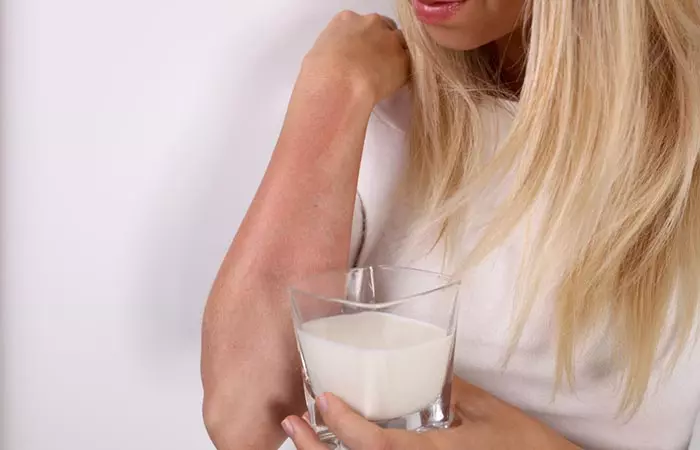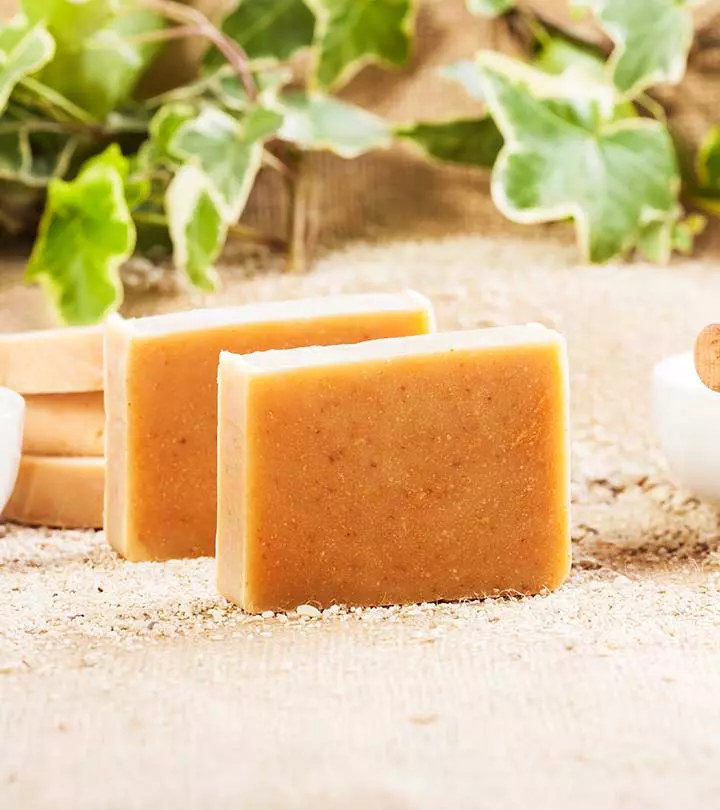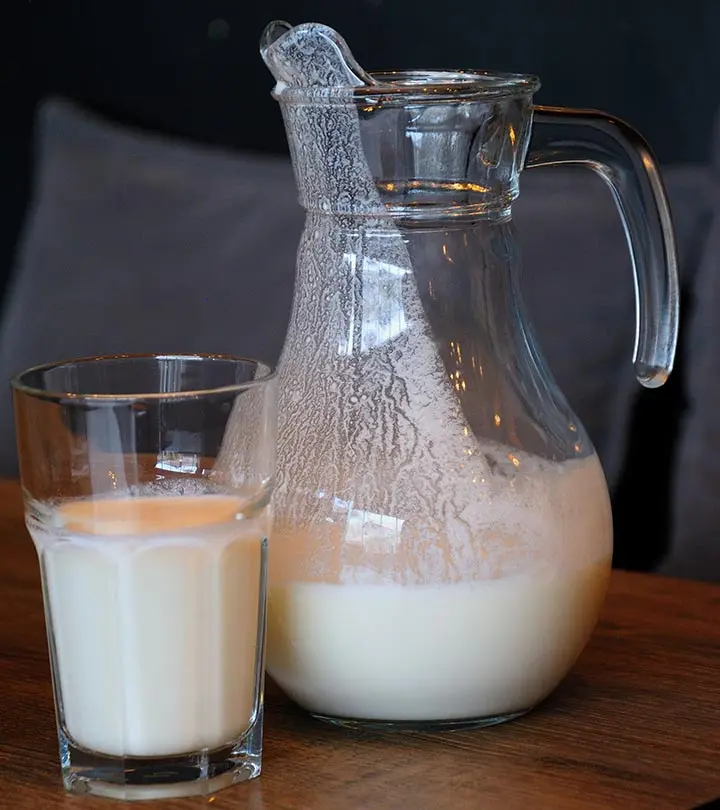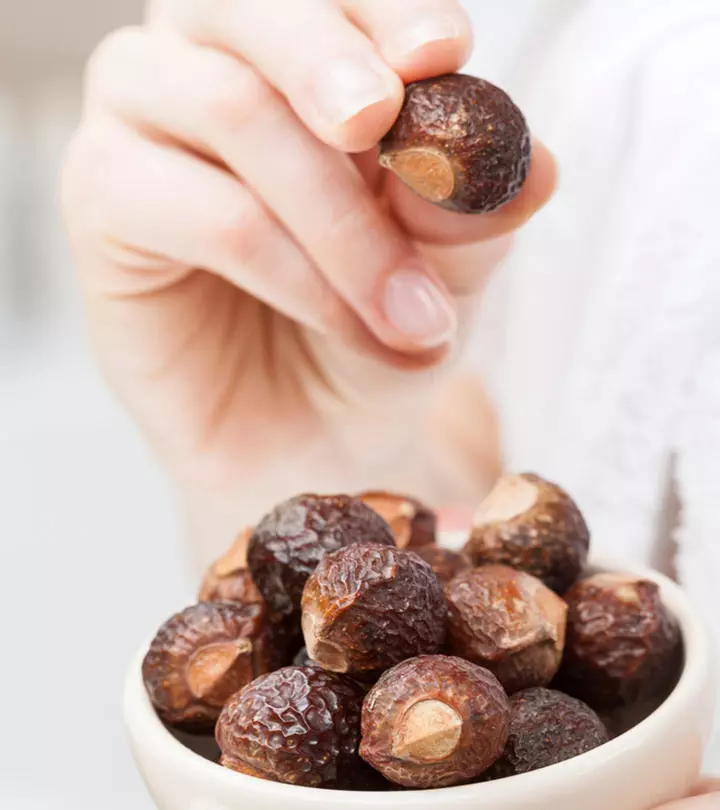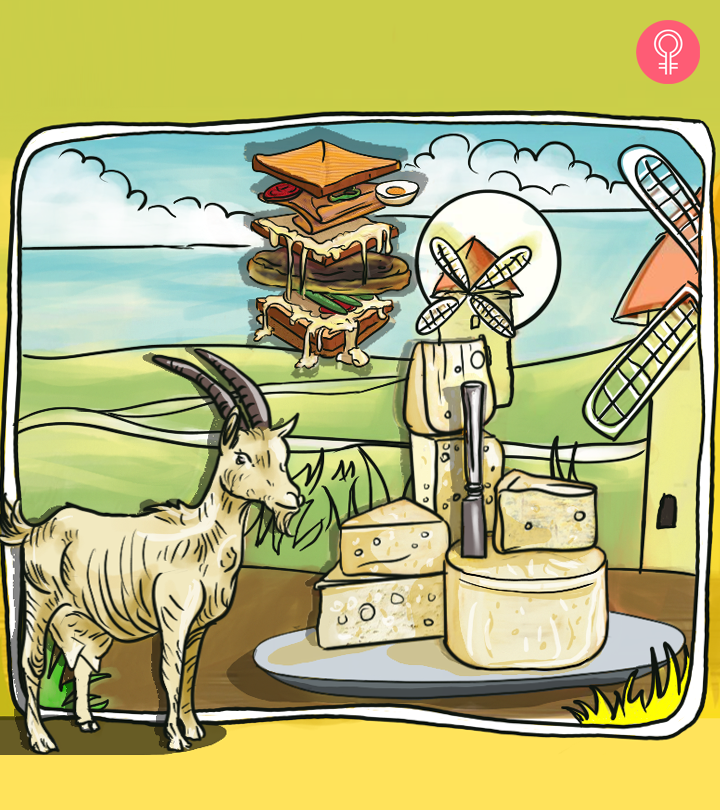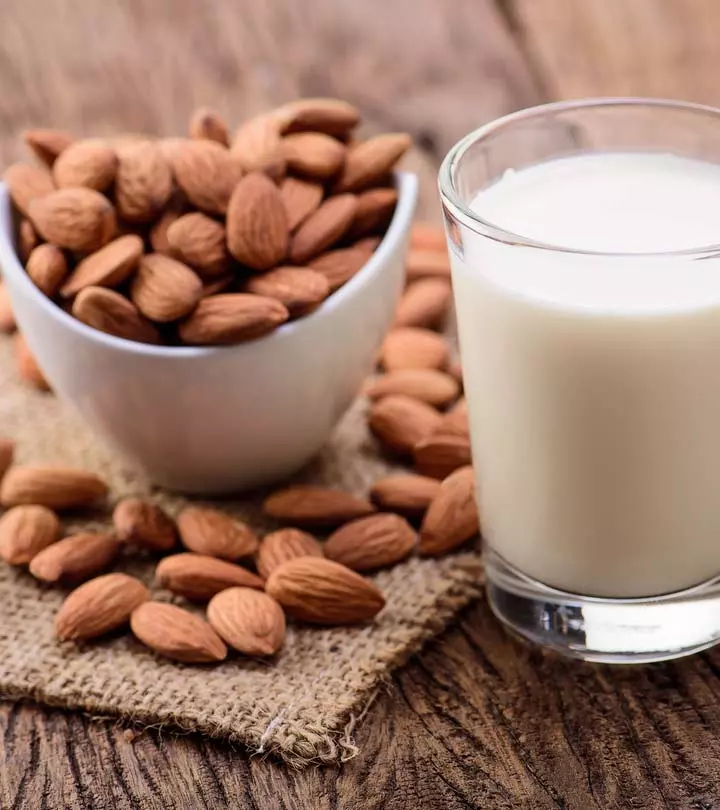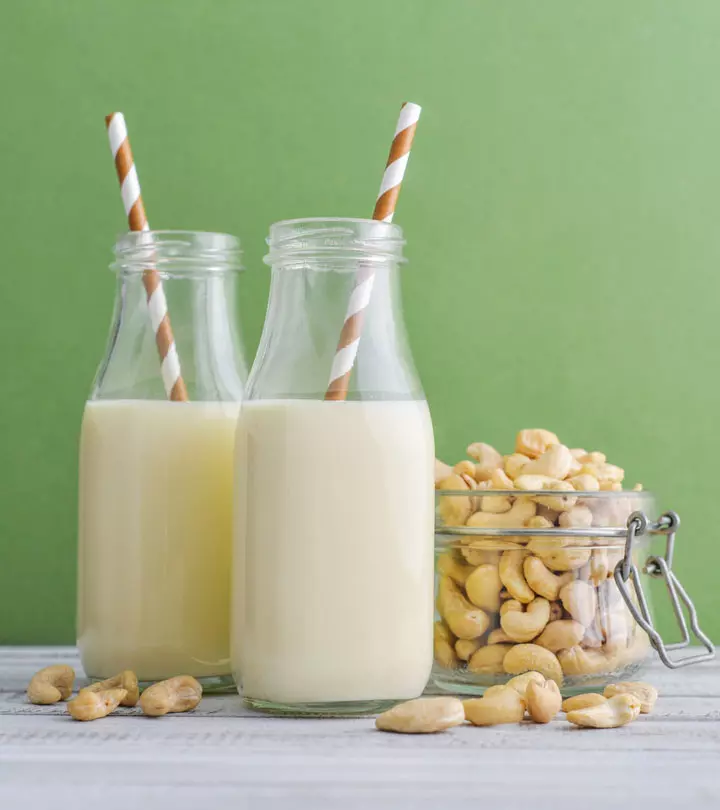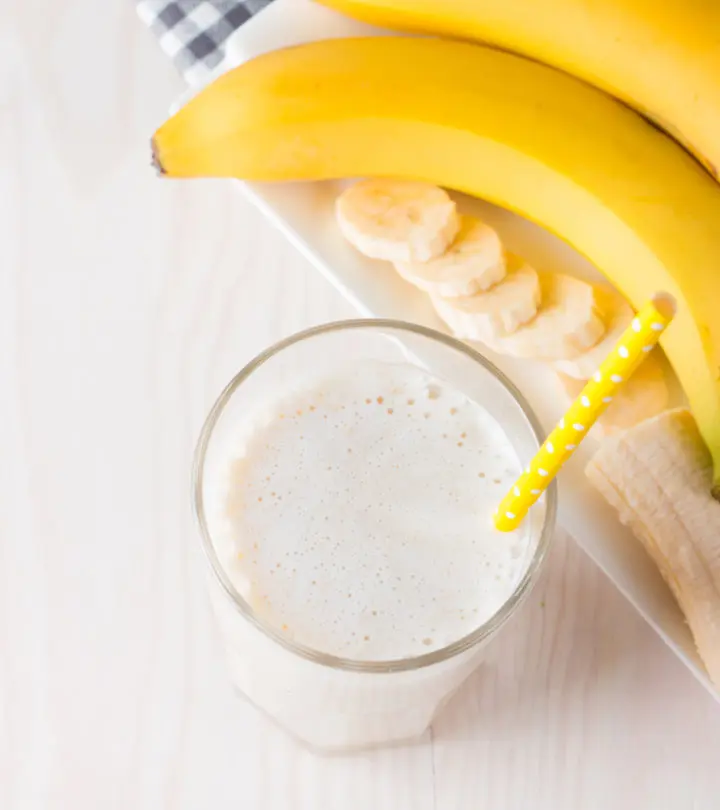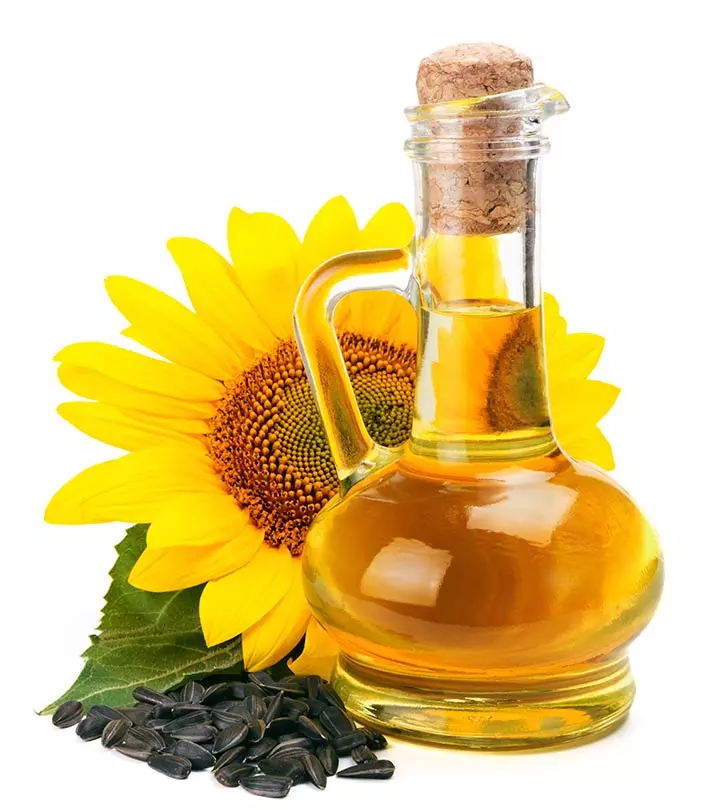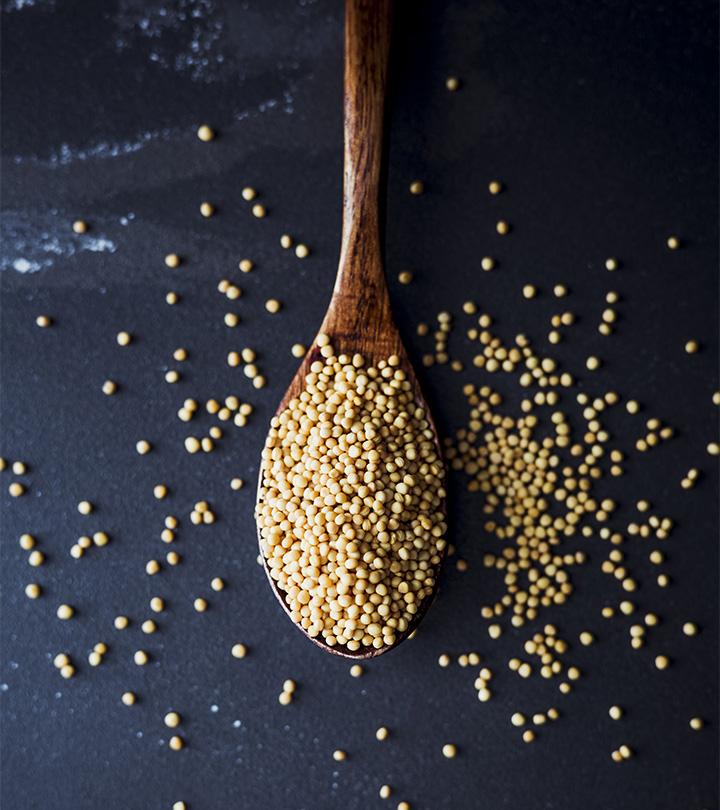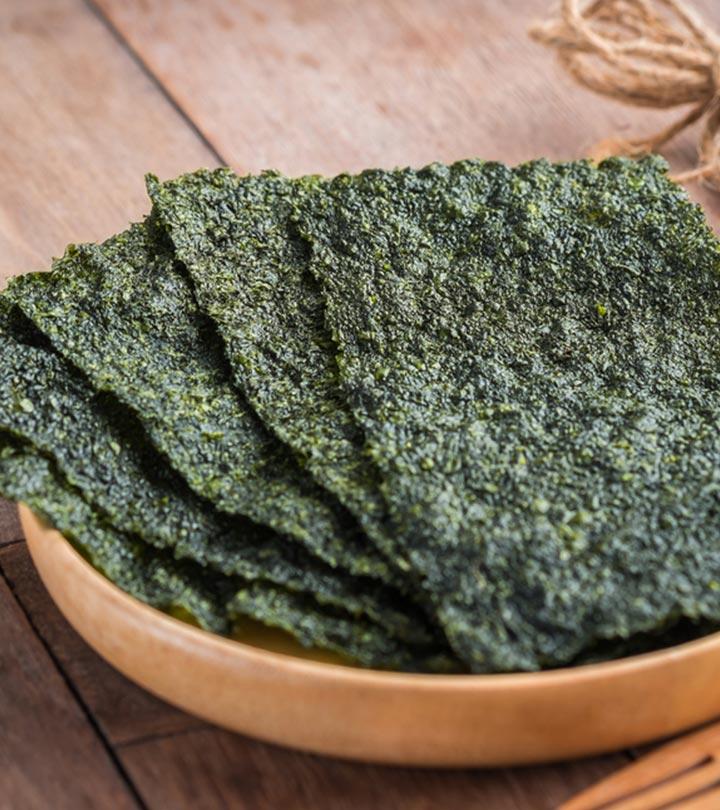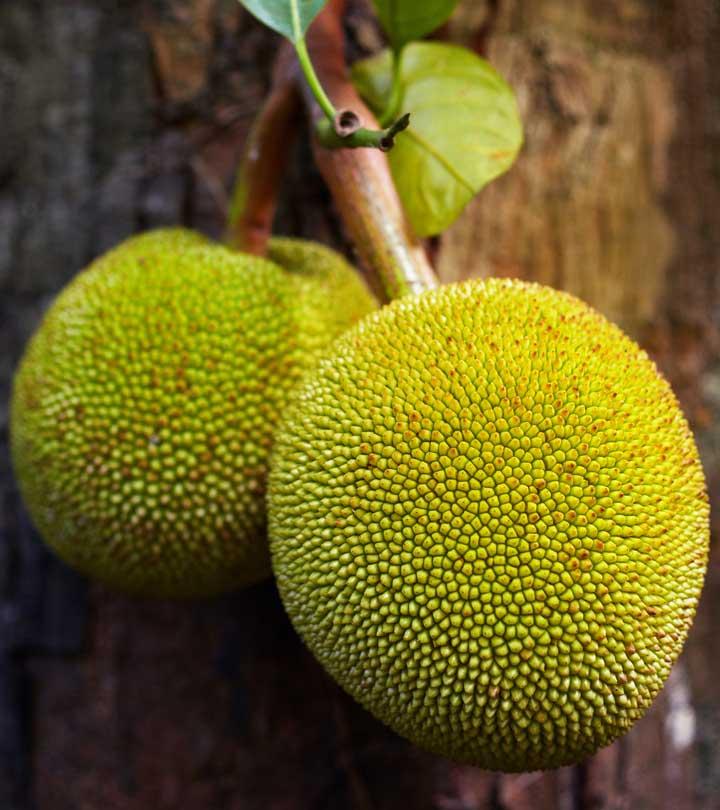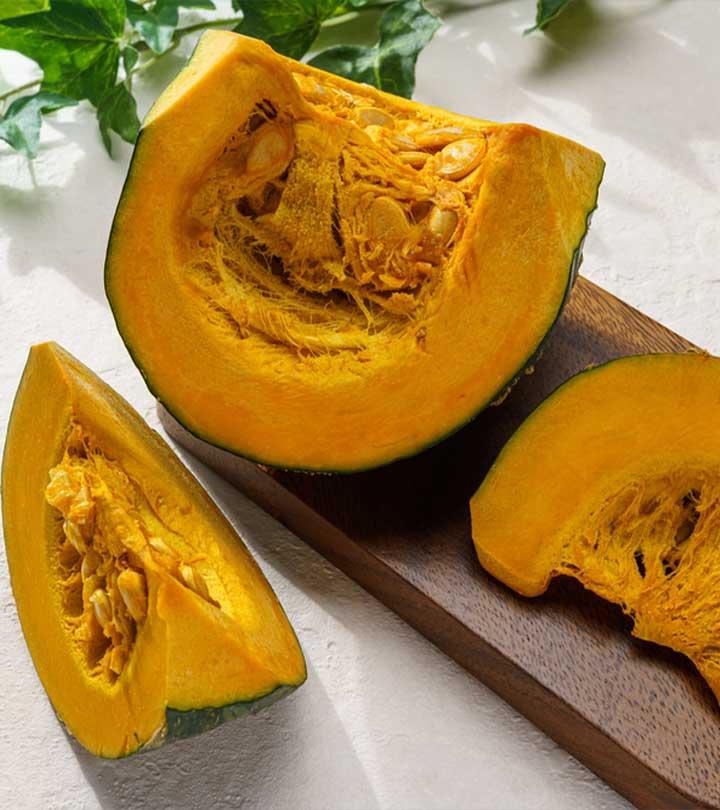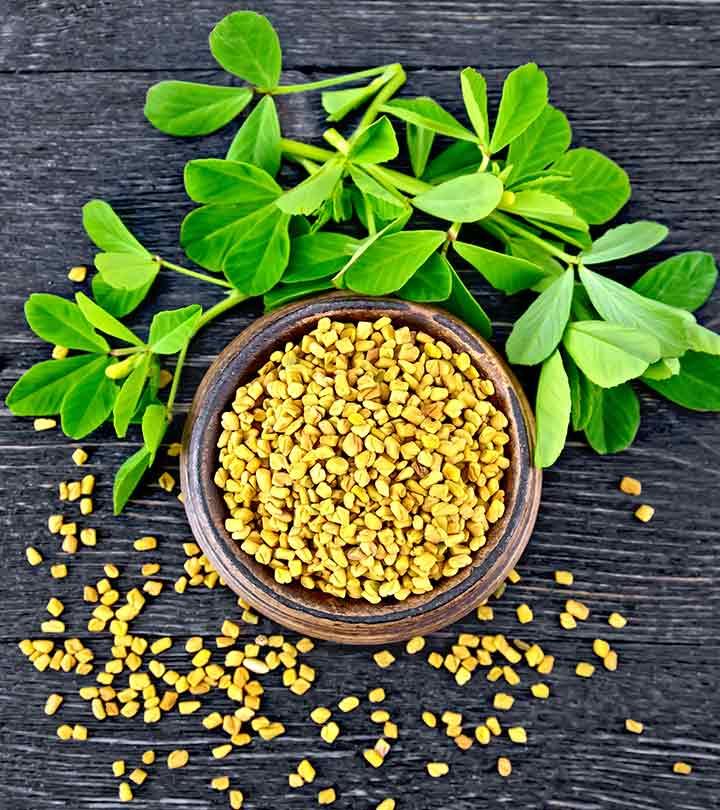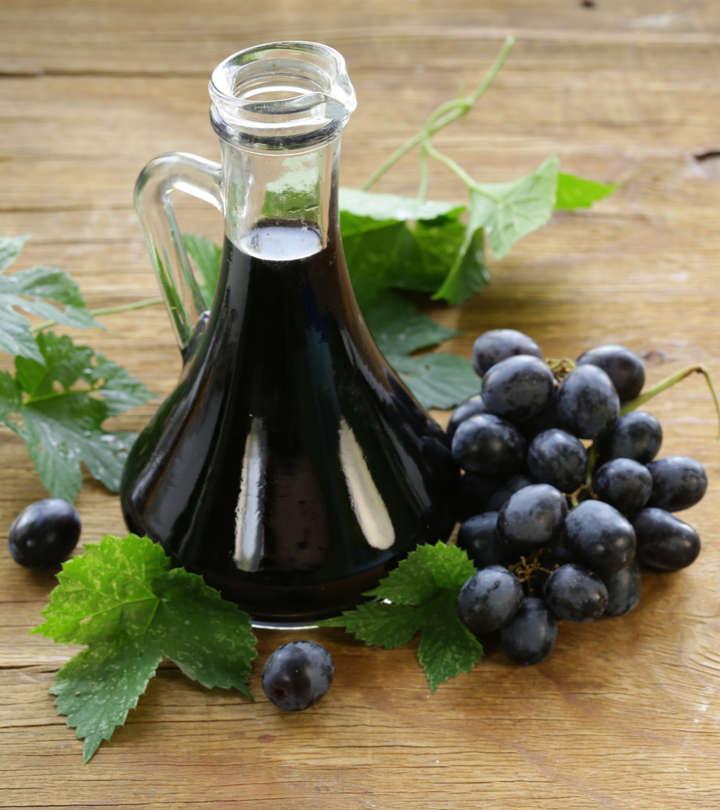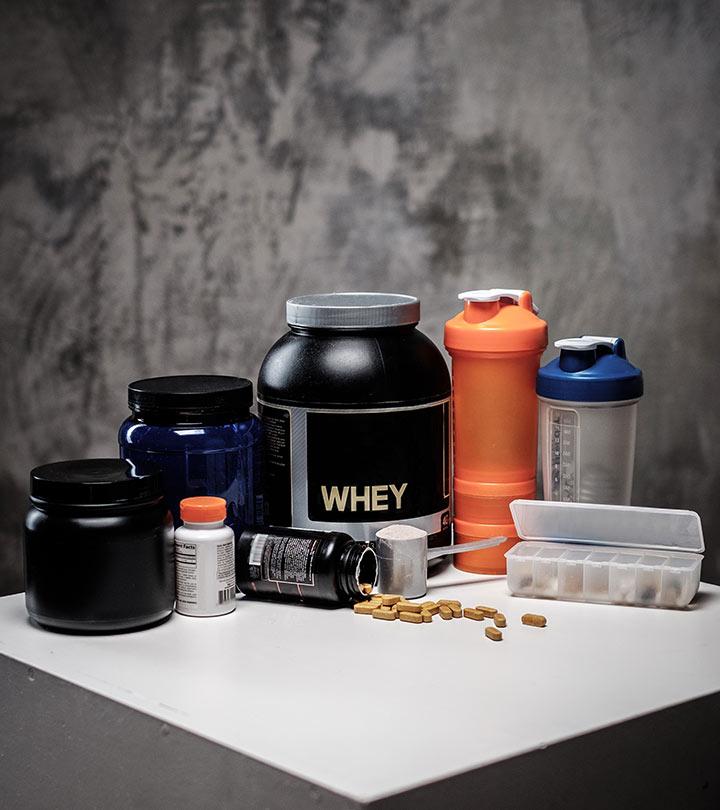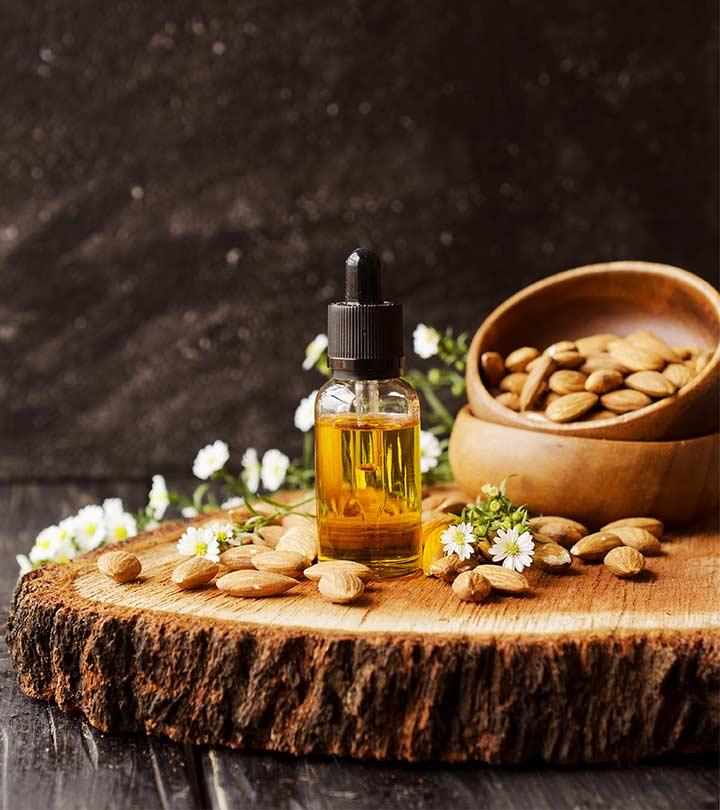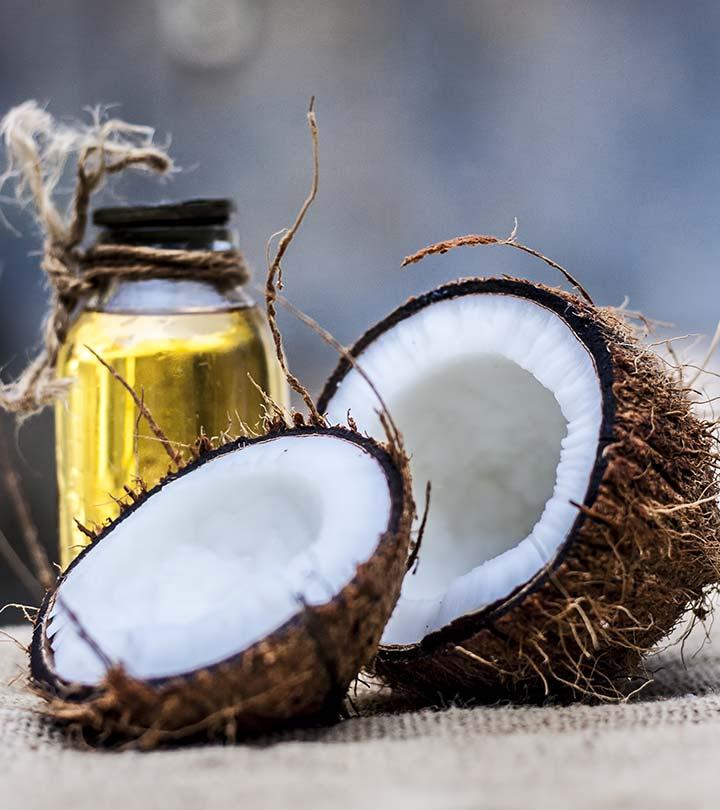7 Wonderful Goat Milk Benefits For Health & Side Effects
We explain the reasons that make this delicious beverage good for your health.
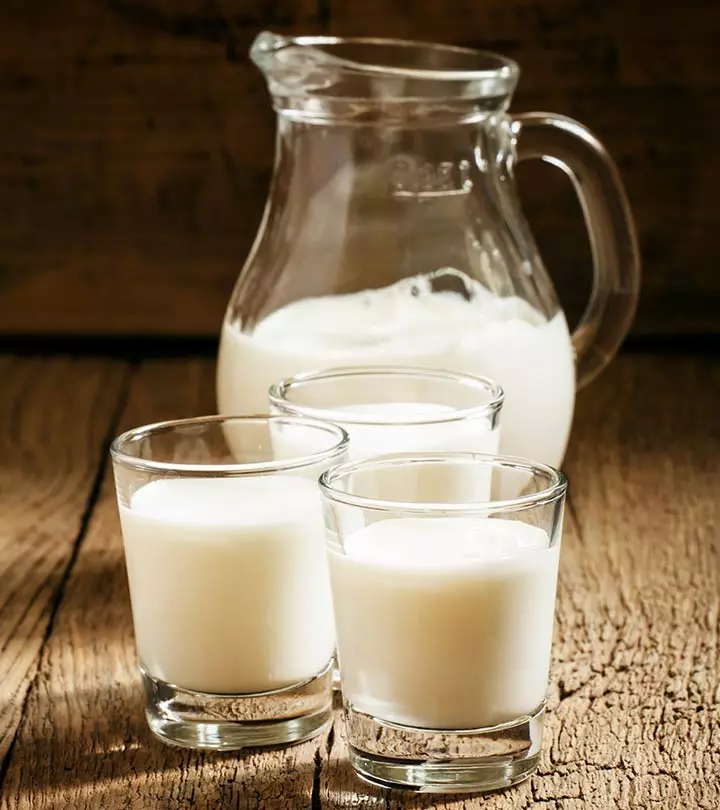
Image: Shutterstock
Goat milk benefits may sway you to choose it over cow or buffalo milk. Natural homogenization also makes it easier to digest than many other milk types. Goat milk contains more calcium and vitamins A and B6 than cow milk (1). It promotes heart and bone health, reduces inflammation, may relieve anxiety, and helps prevent anemia.
This article answers questions like “Is goat milk good for you?”, “what are its benefits?”, etc., and discusses its nutritional profile and any potential side effects. Take a look.
 Know Your Ingredient: Goat Milk
Know Your Ingredient: Goat MilkWhat Is It?
Goat milk is the milk produced by a domesticated goat and is considered very nutritious.
What Are Its Benefits?
Goat milk is easily digestible and helps promote a healthy heart, and strong bones, and boosts metabolic utilization of minerals.
Who Can Consume It?
It is safe for most people to consume unless they are lactose-intolerant.
How Often?
You can consume it daily but in moderation.
Caution
It is better to consume it after boiling to avoid any unwanted infection.
In This Article
What Are The Benefits Of Goat Milk?
Goat milk is easily digestible than most other animal forms of milk. Some evidence suggests that it may treat inflammation and strengthen bones better than cow milk.
1. Is Easily Digestible
The fat globules in goat milk are smaller, and this is probably one reason goat milk is easier to digest (1).
Reports point out the value of goat milk in the treatment of intestinal troubles, thanks to its ease of digestion. The milk’s buffer capacity and the physical character of the curd formed by the coagulation of the milk are also believed to be important factors in its digestibility (2).
In another study, the mechanism of protein digestion in goat milk infant formula was found to be more comparable to human milk (than that of the cow milk formula) (3).
Though goat milk is more easily digestible than cow milk, both contain about the same amount of lactose. Some people believe goat milk has very little lactose, but this is not true. If you are lactose intolerant, you may want to check with your doctor before consuming goat milk (4).
2. May Promote Heart Health
Goat milk is a good source of magnesium, a mineral beneficial for the heart. Magnesium helps maintain a regular heartbeat and prevents the formation of blood clots and increased cholesterol levels. Magnesium also works with vitamin D, which is another nutrient crucial for heart health (5).
Goat milk was found to contain more magnesium than cow milk or buffalo milk. However, the data on indigenous goat milk is scanty. Certain indigenous types of goat milk were found to have lower calcium when compared with buffalo milk (5).
In rat studies, intake of goat milk was found to reduce plasma triglyceridei A type of fat molecule made up of three fatty acids and a glycerol molecule that works as an important source of energy. concentration (6).
3. May Help Fight Inflammation
Studies show that goat milk (and donkey milk) can be recommended as a dietary supplement for individuals with allergic and inflammatory conditions. The milk has been shown to trigger innate and adaptive immune responses in the human body (7).
In rat studies, goat milk oligosaccharidesi Short-chain carbohydrate molecules, typically consisting of three to ten monosaccharide units, found in many foods, including milk, beans, and legumes. exhibited anti-inflammatory effects in cases of colitis. Hence, the milk may be useful in the management of inflammatory bowel disease (8).
In another rat study, the goat milk oligosaccharides reduced intestinal inflammation and contributed to the recovery of damaged colonic mucosa (9).
 Trivia
Trivia4. May Strengthen Bones
Administration of 400 ml of goat milk was found to have a positive impact on bone metabolism. This, when combined with therapy, could also help prevent osteoporosisi A medical disorder that causes the bone tissue to deteriorate and lose density, increasing the risk of fractures. in individuals with rheumatoid arthritis (10).
In rats, a particular protein in goat milk (CSN1S2) was found to improve the formation of the femoral bone. The milk was more effective than goat yogurt (11).
In animals fed goat milk, the process of stabilization of bone turnover seemed to start much earlier. This was found to be especially true in the case of iron deficiency, which may impair bone turnover (12).
5. Could Be A Good Metabolic Agent
Goat milk is an excellent metabolic agent as it boosts the metabolic utilization of minerals like calcium and iron. However, studies in humans are still required to confirm the purported metabolic effects of goat milk (13).
Additionally, it has A2 beta-casein, which is far healthier than A1 beta-casein that cow milk contains. A2 beta-casein is considered the safer variant of beta-casein, while its A1 counterpart has been one of the risk factors for diabetes and ischemic heart disease (14).
In mice studies, goat milk was also found to be less allergenic than cow milk when given after the breastfeeding period. We need more studies to clarify if goat milk is suitable as an alternative to cow milk in milk-based formulas for infant nutrition (15).
6. May Help Relieve Anxiety
Rat studies show that the conjugated linoleic acid in goat milk may influence brain development (and physical development). In these studies, the administration of goat milk was also found to reduce anxiety (16).
7. May Assist In Anemia Treatment
A study states that iron bioavailability goat milk is superior to that of cow milk. Rats fed whole goat milk had a much higher hemoglobin regeneration efficiency (which is the percent conversion of dietary iron into hemoglobin) (17).
Karemah Alhark, a blogger, shared how switching from cow milk to goat milk helped improve her and her family’s general health and well-being. She said, “We experienced a drastic decline in colds and illness. We were considerably healthier overall (i).”
Though goat milk doesn’t often appear in television commercials, it sure does seem like a healthier alternative milk option. The most popular type of milk is cow milk, and we are sure you would have grown up consuming it. But is it time you changed to goat milk?
Goat Milk Vs. Cow Milk – Which Is Better?
Serving size = 1 cup (244 g)
| Goat Milk* | Cow Milk** | |
|---|---|---|
| Calories | 168 | 149 |
| Calcium | 327 mg | 276 mg |
| Protein | 9 g | 8 g |
| Magnesium | 34 mg | 24 mg |
| Phosphorus | 271 mg | 205 mg |
*values sourced from USDA, Milk, goat, fluid, with added vitamin D
**values sourced from USDA, Milk, whole, 3.25% milkfat, with added vitamin D
Both types of milk have similar amounts of lactose. While 100 grams of goat milk has 4.1 grams of lactose, the same amount of cow milk has 4.6 grams of lactose (18).
Goat milk also enhances the body’s ability to absorb certain nutrients from foods. The milk has a beneficial effect over cow milk in terms of the absorption of copper and iron in rats with malabsorption syndrome (19).
 Trivia
TriviaGoat milk seems like a favorable option when you look at the nutrition values. Apart from its benefits, it also has other important uses. Learn more in the next section.
Uses Of Goat Milk
- It can serve as a refreshing drink during summers.
- You can use it to make creamy soups, sauces, ice cream, pudding, and custard.
- You also may make feta, chèvre, or Roquefort cheeses with the milk.
- The milk is also used to create soaps, shampoo bars, and lotions due to its moisturizing properties and ability to help sensitive and dry skin types.
As you saw, in terms of nutrition and research, goat milk fares better. So, is it goat milk all the way? Well, not so fast.
Does Goat Milk Have Any Side Effects?
The only major side effect of goat milk studied by science is an allergy. Goat milk allergy, which is usually not associated with cow milk, is a rare disorder. This allergy could be attributed to the casein protein in the milk (20).
Goat milk allergy seems to affect older children and appears later. The allergy requires strict avoidance of goat milk and other milk-derived products as the reactions could be severe. Minimal doses of goat milk or milk products can cause reactions (21).
Infographic: Goat Milk Caramel Sauce (Cajeta) Recipe
From promoting heart health to helping treat anxiety, goat milk has several health benefits. Since it is highly digestible, you can include goat milk in your daily diet without any worries. You can prepare cheese and yogurt or even drink a glass of goat milk daily for good health. Here, we have an interesting recipe for a Mexican sauce made with goat milk that will be a healthy addition to your diet. Illustration: StyleCraze Design Team
Check out the infographic to learn how to prepare Cajeta or Mexican goat milk caramel sauce.
Goat milk is delicious animal milk with a rich nutritional profile. It is easily digestible and is considered the best alternative to cow milk. There are many health benefits of goat milk, such as promoting heart health, improving the immune system, helping fight inflammation, strengthening bones, relieving anxiety, and treating anemia. However, it may also cause side effects in some people. Goat milk may cause allergies due to its casein protein content. Hence, avoid consuming goat milk if you are allergic to casein.
Frequently Asked Questions
What is the difference between fresh goat milk and powdered goat milk?
Powdered goat milk is a manufactured product that is made by evaporating the milk to dryness. Though it may not be as beneficial as fresh organic goat milk, powdered goat milk sure does have a longer shelf life.
Can we drink raw goat milk?
Raw milk is basically milk that hasn’t been pasteurized to kill the harmful bacteria. It might cause problems. Hence, it is safe not to drink raw milk as it is.
Can we use goat milk if we are sensitive to cow milk?
Not always. Even if you are not allergic to cow milk, you may be allergic to goat milk. However, this disorder is rare (20).
Does goat milk make you gain weight?
Some research shows that goat dairy may have a moderately higher appetite-suppressing potential when compared to cow dairy (22). Though this may seem like goat milk may help in weight loss (and not make you gain weight), there is no direct research to state so.
Does goat milk have estrogen?
All milk, including goat milk, contains small amounts of various hormones, including estrogen.
Is goat milk safe for babies?
Some research shows that goat milk formula may have strong prebiotic and anti-infection properties, which may protect infants against gastrointestinal infections (23). However, more research is warranted, especially with respect to goat milk (and not the formula).
Is goat milk good for skin? Would goat milk soap help?
There is no research stating that goat milk can benefit the skin. However, certain proponents of goat milk promote goat milk soap for skin health. Though anecdotal evidence suggests that goat milk soap could help treat acne, eczema, and dry skin, there is no research to support this.
Is goat’s milk good for diabetes?
Yes, the consumption of goat milk may considerably enhance glucose tolerance which may slow down the development and progress of type 2 diabetes (24).
Is goat milk good for fatty liver?
Animal studies suggest that goat’s milk contains liver-protecting properties that may regulate bile secretion and help protect the liver against injury (25).
Is goat milk a probiotic?
Yes, goat milk contains significant amounts of the bacterial strain, Lactic Acid bacteria (LAB), which are known for their probiotic effects (26).
Key Takeaways
- Goat milk may help improve heart health, reduce inflammation, strengthen bones, and treat anemia.
- Goat milk has higher amounts of calcium and magnesium than cow milk.
- The casein in goat milk may cause an allergic reaction in some people.

Image: Stable Diffusion/StyleCraze Design Team
References
Articles on StyleCraze are backed by verified information from peer-reviewed and academic research papers, reputed organizations, research institutions, and medical associations to ensure accuracy and relevance. Read our editorial policy to learn more.
- Review on Goat Milk Composition and its Nutritive Value, ResearchGate.
https://www.researchgate.net/publication/312429484_Review_on_Goat_Milk_Composition_and_its_Nutritive_Value - Goat milk increases gastric emptying and alters caecal short chain fatty acid profile compared with cow milk in healthy rats
https://pubmed.ncbi.nlm.nih.gov/32959034/ - Protein Digestion and Quality of Goat and Cow Milk Infant Formula and Human Milk Under Simulated Infant Conditions, Journal of pediatric gastroenterology and nutrition, US National Library of Medicine, National Institutes of Health.
https://www.ncbi.nlm.nih.gov/pubmed/28968291 - GUIDELINES FOR THE PRODUCTION AND REGULATION OF QUALITY DAIRY GOAT MILK, The Dairy Practices Council.
https://health.maryland.gov/phpa/OEHFP/OFPCHS/Milk/Shared%20Documents/DPC059_Regulation_Quality_Goat_Milk.pdf?Mobile=1 - Comparison of Surti goat milk with cow and buffalo milk for gross composition, nitrogen distribution, and selected minerals content, Veterinary World, US National Library of Medicine, National Institutes of Health.
https://www.ncbi.nlm.nih.gov/pmc/articles/PMC4983121/ - Goat milk feeding causes an increase in biliary secretion of cholesterol and a decrease in plasma cholesterol levels in rats, Journal of Dairy Science, US National Library of Medicine, National Institutes of Health.
https://www.ncbi.nlm.nih.gov/pubmed/15738237 - Anti-inflammatory and anti-allergic properties of donkey’s and goat’s milk, Endocrine, metabolic & immune disorders drug targets, US National Library of Medicine, National Institutes of Health.
https://www.ncbi.nlm.nih.gov/pubmed/24450455 - Goat milk oligosaccharides are anti-inflammatory in rats with hapten-induced colitis, The Journal of Nutrition, US National Library of Medicine, National Institutes of Health.
https://www.ncbi.nlm.nih.gov/pubmed/16484541 - Oligosaccharides isolated from goat milk reduce intestinal inflammation in a rat model of dextran sodium sulfate-induced colitis, Clinical Nutrition, US National Library of Medicine, National Institutes of Health.
https://www.ncbi.nlm.nih.gov/pubmed/16375993 - Clinical efficacy instant goat milk in the complex therapy and prevention of osteoporosis in patients with rheumatoid arthritis, Voprosy pitaniia, US National Library of Medicine, National Institutes of Health.
https://www.ncbi.nlm.nih.gov/pubmed/25816630 - The anti-osteoporosis effects of CSN1S2 protein of goat milk and yoghurt on a complete Freund’s adjuvant-induced rheumatoid arthritis model in rats, Biomarkers and Genomic Medicine, ScienceDirect.
https://www.sciencedirect.com/science/article/pii/S2214024715000520 - Goat milk during iron repletion improves bone turnover impaired by severe iron deficiency, Journal of Dairy Science, US National Library of Medicine, National Institutes of Health.
https://www.ncbi.nlm.nih.gov/pubmed/21605744 - Influence of goat and cow milk on the digestive and metabolic utilization of calcium and iron, ResearchGate.
https://www.researchgate.net/publication/12133240_Influence_of_goat_and_cow_milk_on_the_digestive_and_metabolic_utilization_of_calcium_and_iron - Discussions of Effect A1 and A2 Milk Beta-Casein Gene on Health, Approaches in Poultry, Dairy & Veterinary Sciences, Crimson Publishers.
https://crimsonpublishers.com/apdv/fulltext/APDV.000556.php - Goat milk is less immunogenic than cow milk in a murine model of atopy, Journal of pediatric gastroenterology and nutrition, US National Library of Medicine, National Institutes of Health.
https://www.ncbi.nlm.nih.gov/pubmed/15448424 - Anxiety behavior is reduced, and physical growth is improved in the progeny of rat dams that consumed lipids from goat milk: an elevated plus maze analysis, Neuroscience Letters, US National Library of Medicine, National Institutes of Health.
https://www.ncbi.nlm.nih.gov/pubmed/23916660 - Bioavailability of iron in goat milk compared with cow milk fed to anemic rats, Journal of Dairy Science, US National Library of Medicine, National Institutes of Health.
https://www.ncbi.nlm.nih.gov/pubmed/3805444 - Goat Milk: Composition, Characteristics, ResearchGate.
https://www.researchgate.net/publication/282023189_Goat_Milk_Composition_Characteristics_Encyclopedia_of_Animal_Science - Beneficial effect of goat milk on nutritive utilization of iron and copper in malabsorption syndrome, Journal of Dairy Science, US National Library of Medicine, National Institutes of Health.
https://www.ncbi.nlm.nih.gov/pubmed/11949871 - Goat’s milk allergy, Allergologia et immunopathologia, US National Library of Medicine, National Institutes of Health.
https://www.ncbi.nlm.nih.gov/pubmed/17594876 - Allergy to goat and sheep milk without allergy to cow’s milk, Allergy, US National Library of Medicine, National Institutes of Health.
https://www.ncbi.nlm.nih.gov/pubmed/17002714 - Comparison of the Effects of Goat Dairy and Cow Dairy Based Breakfasts on Satiety, Appetite Hormones, and Metabolic Profile, Nutrients, US National Library of Medicine, National Institutes of Health.
https://www.ncbi.nlm.nih.gov/pmc/articles/PMC5579670/ - Oligosaccharides in goats’ milk-based infant formula and their prebiotic and anti-infection properties, Cambridge University.
https://www.cambridge.org/core/journals/british-journal-of-nutrition/article/oligosaccharides-in-goats-milkbased-infant-formula-and-their-prebiotic-and-antiinfection-properties/A2F32502DB77345197E00AF47213316F - Cow Milk and Goat Milk Alleviate Glucose Intolerance in High-Fat Induced Obesity Mice and Db/db Mice. Current Developments in Nutrition, ResearchGate
https://www.researchgate.net/publication/336772927_Cow_Milk_and_Goat_Milk_Alleviate_Glucose_Intolerance_in_High-Fat_Induced_Obesity_Mice_and_Dbdb_Mice_P08-034-19 - Consumption of Goats’ Milk Protects Mice From Carbon Tetrachloride-Induced Acute Hepatic Injury and Improves the Associated Gut Microbiota Imbalance, US National Library of Medicine
https://www.ncbi.nlm.nih.gov/pmc/articles/PMC5962680/ - Probiotic Lactic Acid Bacteria from Goat’s Milk Potential Producer of Bacteriocin: Evidence from Liquid Chromatography-Mass Spectrometry, Journal of Pure and Applied Microbiology
https://microbiologyjournal.org/probiotic-lactic-acid-bacteria-from-goats-milk-potential-producer-of-bacteriocin-evidence-from-liquid-chromatography-mass-spectrometry/#:~:text=Lactic%20acid%20bacteria%20(LAB)%2C,of%20indigenous%20Indian%20goat%20breeds
Read full bio of Cheryl Mussatto
Read full bio of Arshiya Syeda
Read full bio of Sindhu Koganti









